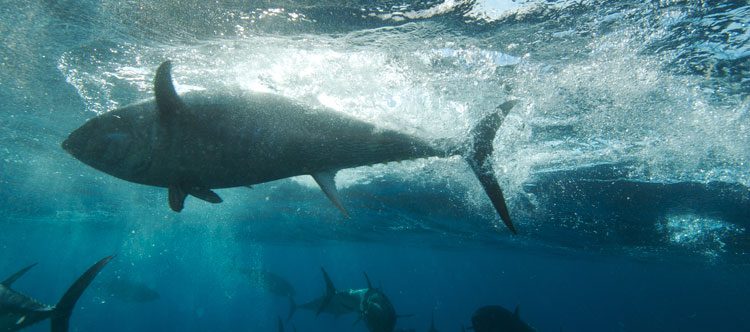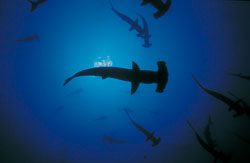ICCAT: Where fishing is regulated for migratory species in the Atlantic

The International Commission for the Conservation of Atlantic Tuna (ICCAT) meets once again to decide the future of large pelagic species like sharks, swordfish, bluefin tuna and albacore, among others.
ICCAT manages the so-called Highly Migratory Species in the Atlantic Ocean. These fish are commercially exploitable species that develop their life cycles in waters around the world, and so their management depends on cooperative efforts among countries that exploit them.
Who?
ICCAT includes representatives of each country within the area of the convention (the Atlantic). Currently, there are 49 contracting parties. During the annual meeting (usually held in November each year), participants must reach agreements on catch and management measures that will be implemented for each managed species the following year. However, many species included in the convention do not have any such measures in place.
ICCAT has various committees that meet throughout the year and provide information for subsequent decision-making during the annual meeting, as well as for specific management measures or plans. Some of these committees are:
- The Scientific Committee of Research and Statistics (SCRS). Each country must provide data about catches, fleets and other information that may be used by scientists to assess the status of stocks and provide recommendations to the Contracting Parties.
- The Compliance Committee (CoC). In charge of assessing compliance with the decisions established through management plans or measures, as well as annual catch quotas. ICCAT members may present proof of non-compliance by other countries.
For what?
ICCAT should be a forum in which countries agree to establish measures for sustainable fisheries management or the protection of endangered species. Unfortunately, there are no management measures or plans in place for many of the species under its competence, and scientific advice is often not followed.
Eastern Atlantic and Mediterranean bluefin tuna, which was driven close to extinction by overfishing, provides a stark example of the grave consequences of not heeding scientific advice. Various species of sharks are also in danger because their long life cycles and low rates of reproduction make them especially vulnerable to overfishing.
The significant lack of scientific data makes it difficult to evaluate stocks, and as such, adequate management measures cannot be implemented for the different species included in the convention. However, the fishing continues…

Oceana’s role in ICCAT
Oceana holds the status of an observer in ICCAT, which means that we may attend the meetings held throughout the year and participate in the annual meeting of the parties, but we do not take part in the decision-making process.
One of the main responsibilities of non-governmental organisations is to inform agencies about scientific advice, the real state of species and of possible alternatives available for the implementation of good management measures. Oceana also carries out its own research to report irregularities to the Compliance Committee, and provides data that shed light on the state of the stocks.


